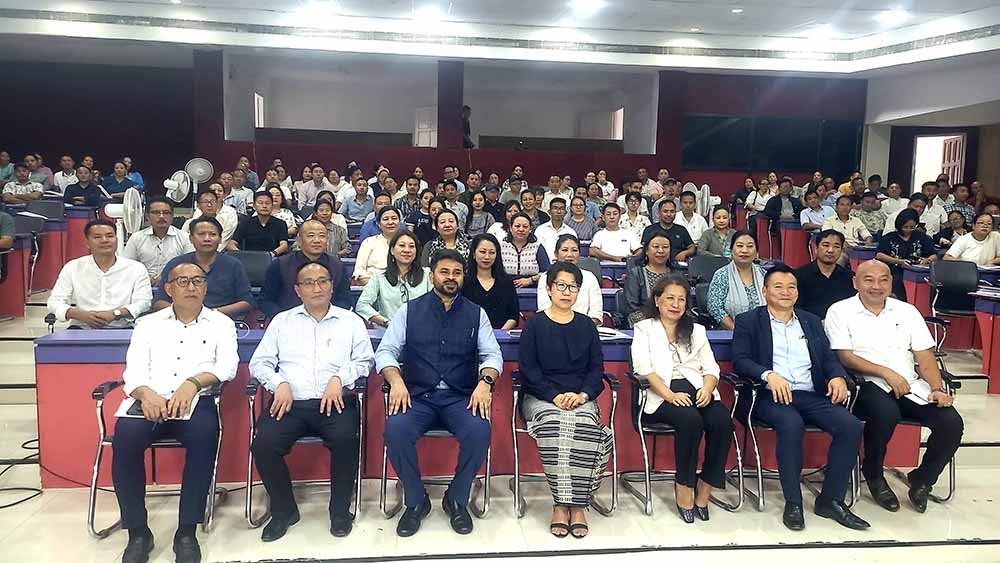Principal Director of School Education, Shashank Pratap Singh, expressed serious concern over teacher attendance through the SMILE App during the two-day state-level education workshop held at Capital Convention Centre, Kohima.
He said over 1,500 teachers failed to mark attendance even once in the last four months and more than 150 institutions showed zero records. Among 49 district establishments, 34 had below 50% attendance, 17 below 10%, while 10 offices had none. Shashank therefore urged strict enforcement of the system for improved transparency and efficiency.
He also stressed proper implementation of the PM POSHAN scheme, stating no child should be left behind due to official lapses.
The workshop, under Samagra Shiksha, included sessions on PGI, PARAKH, UDICE, PM SHRI Schools, vocational and inclusive education, and Viksit Bharat goals.
During the inaugural session, L. Jamithung Lotha, State Mission Director of Samagra Shiksha, emphasized India’s aspiration to become a developed nation by 2047 under the “Viksit Bharat” initiative. He noted that education remains central to this vision, with the government significantly boosting school education funding.
He urged district officials to implement mechanisms for holistic educational reform, highlighting that over 26% of the state’s salary budget is allocated to school education—making it the most prioritized sector.
He revealed that Nagaland has 82 grant demands and 2,734 schools—1,915 government, 814 private unaided, and a few others under central ministries. The state’s education workforce comprises 32,801 teachers serving 4,10,389 students.
However, disparities in academic performance were noted. The 2025 HSLC pass rate in private schools was 88%, compared to 48% in government schools. Similar trends were seen in HSSLC results, with private institutions outperforming government ones across arts, science, and commerce streams.
He therefore stressed the importance of reliable data collection, urging districts to ensure accuracy to benefit the entire system.
He emphasized accountability, declaring that failure to act responsibly would jeopardize the future generation. He also announced plans to expand vocational education institutes from 171 to 186 in the coming year.
Kevileno Angami, Commissioner & Secretary for School Education, stated that achieving “Viksit Bharat” requires unified progress across all states and UTs. She identified education as foundational to developing human capital and called on stakeholders to recognize their critical roles in shaping a “Developed Nagaland.” She emphasized that everyone holds a purposeful position in the education ecosystem.
Workshop discussions will contribute to state-specific feedback for the upcoming 5th Chief Secretaries Conference. Kelhikha Kenye, Deputy Mission Director and Nodal Officer, urged district education officials to submit feedback by August 5 and to address policy gaps based on field insights. Dr. Bijano Murry presented the PGI 2023–24 report, noting improvement but stressing continued support.
Benjungdenla Yaden from SCERT highlighted the importance of teacher awareness for the upcoming PARAKH survey, while consultant James Kikon shared findings on foundational-stage assessments in government schools.
Participants included education officers, DIET faculty, coordinators, programmers, and data operators. The session was chaired by Dr. Kevizakie Rio.
SMILE App reveals major attendance gaps
CorrespondentKohima, Jul 25 (NPN)

